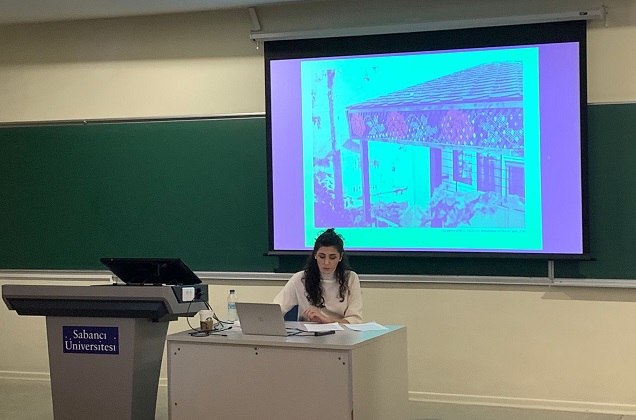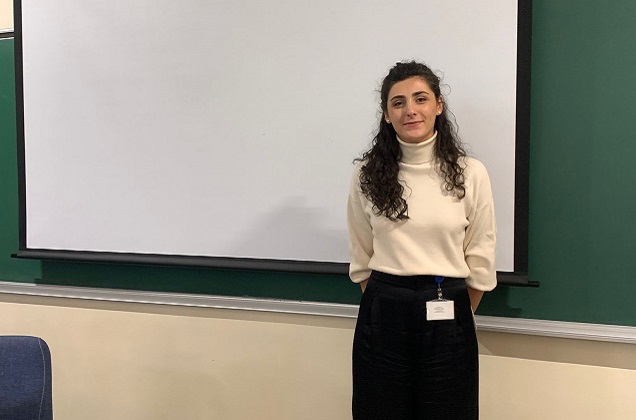27/02/2024
Sabancı University Faculty of Engineering and Natural Sciences hosted the seminar of embroidery artist Damla Yalçın. Damla Yalçın explained the modern perspective on traditional embroidery art and the process of creating her works at the seminar entitled "From Embroidery to Bioart".

Damla Yalçın works with installations that the audience is a part of, using sewing and embroidery techniques and different methods in her productions. By intertwining tradition and contemporary art, she takes advantage of the production opportunities offered by new media. Synthesizing different production techniques, the artist takes the viewer and the artwork on a journey towards space, memory and identity. With her works, she investigates how we fill the space we live in with all the dialectics of life and shows how we gradually become rooted in a "Corner of the World". As a continuation of her master's thesis, Yalçın continues her research, production and experiments on bacteria, yeast and fungi in the field of bioart.
Damla Yalçın, who gave information about her works by showing examples at the seminar, said, “In my works, I work conceptually on childhood, space and identity. While doing this, I prefer to include the audience and create a space where we can explore together. Although some of my works contain traditional elements, I also benefit from new media when transferring them to daily and contemporary art. With this synthesis I made, we embark on a journey about space and memory. I want the audience to accompany us on this journey”.

Damla Yalçın, the guest of the Gate 27 Artist Exchange Program, will work on her interdisciplinary project on the use of alternative materials in denim production during her residency at Gate 27. The artist also stayed on the Sabancı University campus between 19 and 23 February and took steps towards combining art and science by conducting different experiments in the Molecular Biology, Genetics, and Bioengineering laboratories with the help of our master's degree (Ahmet Baki Şahin, Yeşim Erdoğan) and doctoral students (Gülin Baran, Gülşah Sevimli).




